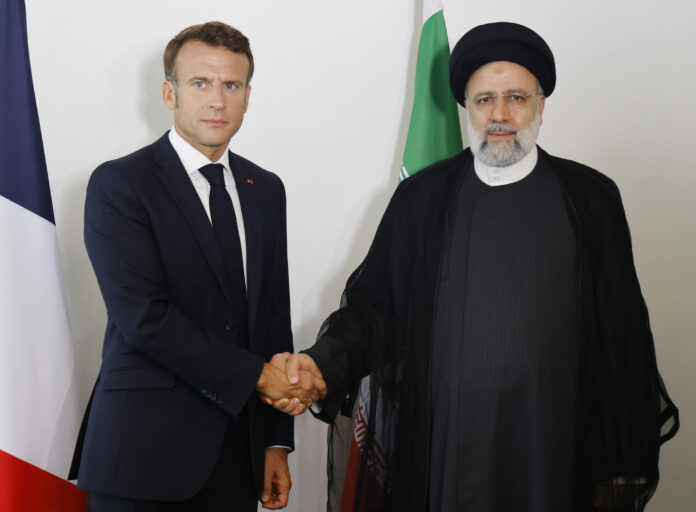PARIS: French President Emmanuel Macron and a senior United States envoy have urged Iran to take urgent steps to restore confidence in its nuclear program, warning that the country has only a narrow window to avert the reimposition of sweeping UN sanctions.
The appeal comes just days before the deadline set by France, Britain, and Germany to trigger the so-called snapback sanctions at the UN Security Council a move that would reinstate wide-ranging economic restrictions lifted under the 2015 nuclear deal.
On the sidelines of the United Nations General Assembly (UNGA) in New York, Macron held a closed-door meeting with Iranian President Masoud Pezeshkian, urging Tehran to reverse steps taken since the Israeli and US strikes on Iran in June.
Macron emphasized three urgent demands:
-
Unrestricted access for UN nuclear inspectors
-
Immediate resumption of nuclear negotiations
-
Transparency on highly enriched uranium stockpiles
-
An agreement remains possible. Only a few hours are left. It’s up to Iran to respond to the legitimate conditions we have raised, Macron wrote later on X (formerly Twitter).
American real estate investor and envoy Steve Witkoff, who had previously engaged in backchannel talks with Tehran, said the United States preferred diplomacy but was ready to back sanctions if talks collapsed.
We have no desire to hurt them. But if we can’t negotiate around snapbacks, then snapbacks will be what they are.
They’re the right medicine, Witkoff said at the Concordia Summit, also on the sidelines of UNGA.
Iran, however, maintains that it has never pursued nuclear weapons. In his UNGA address, President Pezeshkian insisted that Tehran’s actions were defensive and accused Western powers of double standards.
Iran has never sought and will never seek to build a nuclear bomb, he declared. The one disturbing peace and stability in the region is Israel, but Iran is the one that gets punished.
He displayed photos of casualties from the 12-day Israeli military campaign in June, which Iran says killed over 1,000 people, and denounced joint Israeli-US strikes on its nuclear facilities as a grave betrayal of diplomacy.”
If triggered, the sanctions would restore wide-ranging UN restrictions suspended under the 2015 Joint Comprehensive Plan of Action (JCPOA), negotiated by former US President Barack Obama.
That deal collapsed after former President Donald Trump withdrew in 2018, imposing heavy unilateral US sanctions.
Pezeshkian accused Europe of failing to uphold its end of the JCPOA, blaming Western bad faith for Iran’s reduced compliance.
They falsely presented themselves as parties of good standing to the agreement, and they disparaged Iran’s sincere efforts as insufficient all in pursuit of the destruction of the JCPOA, he said.
With the deadline only days away, diplomats say Iran faces a stark choice: cooperate with inspectors and return to talks, or face renewed global sanctions that could further cripple its economy.
Whether Tehran bends or digs in, the coming days will prove decisive for the future of the Iran nuclear issue, with implications for Middle East security, global energy markets, and already fragile US-Iran relations.



